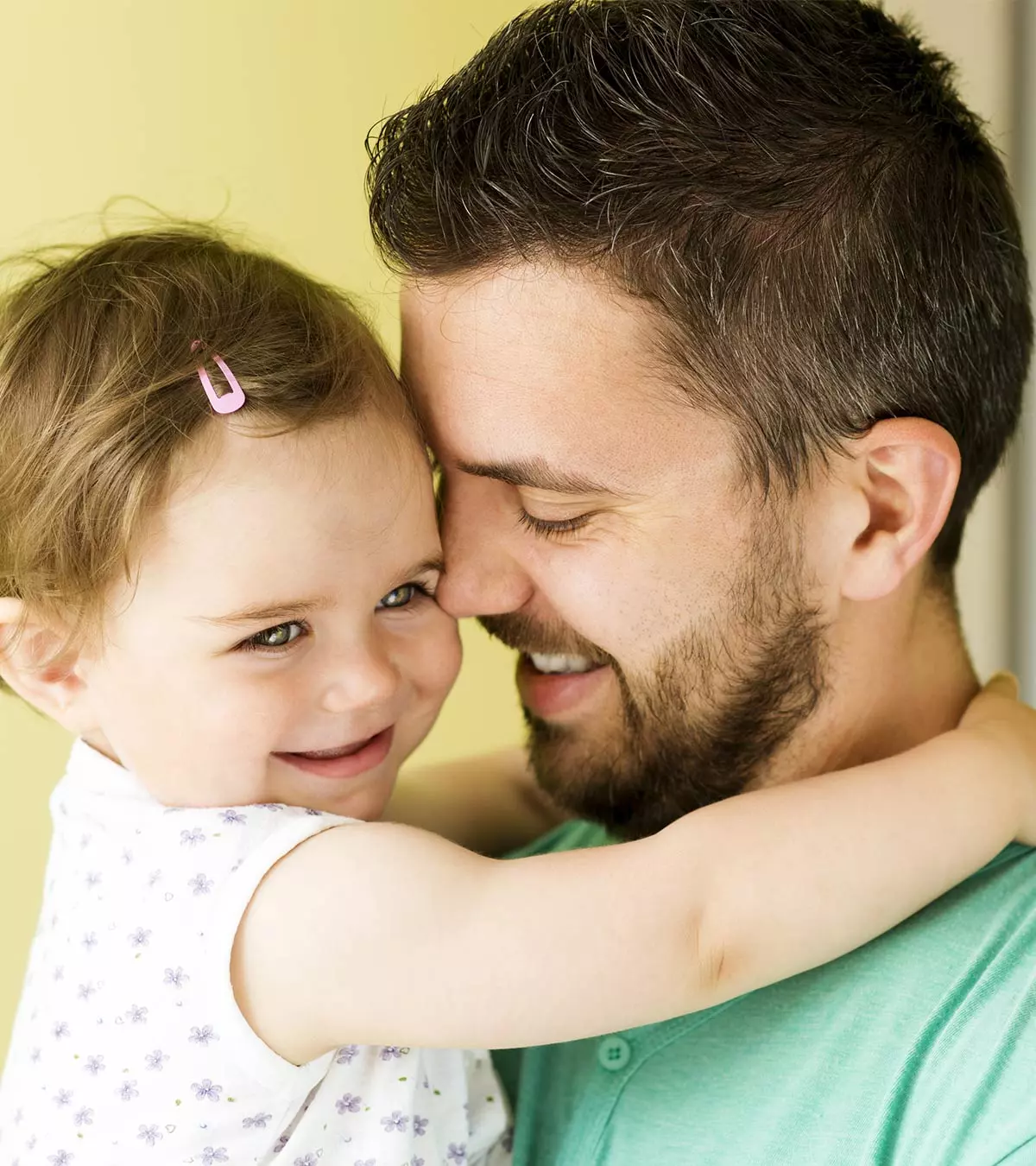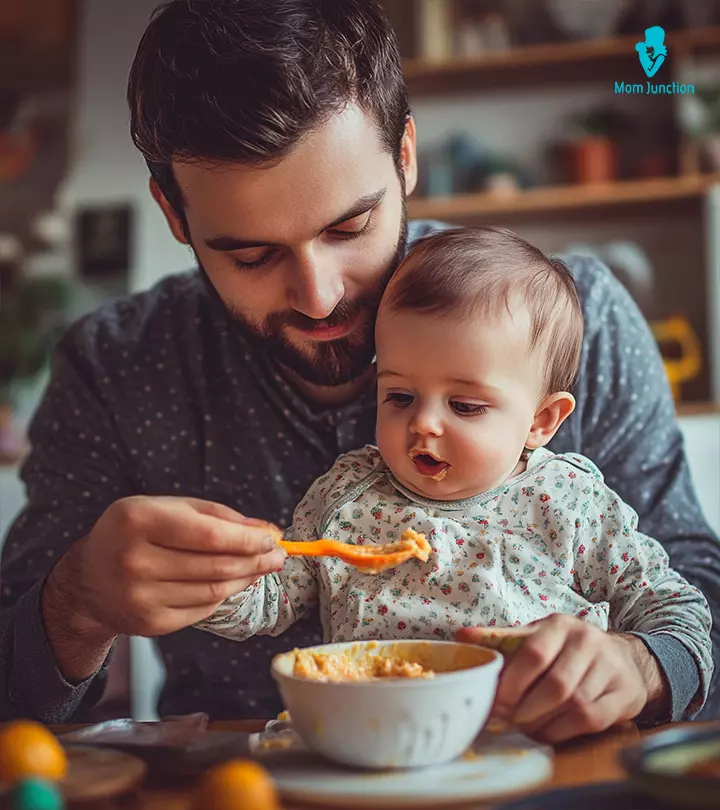
Image: Shutterstock
Raising a child comes with many responsibilities, and they need to be shared by both partners. However, things get complicated when a couple separates and opts for co-parenting. The primary focus of co-parenting should be on putting your child’s well-being first and ensuring that they group up in harmony.
You have to show that both parents love them and bring a sense of stability into their lives despite the shared custody. In this post, we discuss what co-parenting is and tell you the dos and don’ts.
Key Pointers
- Co-parents share the responsibilities of raising their children, regardless of their marital or relationship status.
- Prioritizing the child’s well-being and ensuring equal access to the child are fundamental principles of co-parenting.
- Co-parenting after a divorce can provide children with a sense of stability and consistency in their routine, leading to their overall happiness and well-being.
- It is essential to avoid venting or expressing negativity in front of your children and instead work collaboratively with your co-parent for the benefit of your kids.
- It is crucial not to ask your children to spy on your ex-partner, not to force them to take sides, and not to rely on them as your primary source of emotional support.
What Is Co-Parenting?
Co-parenting is a type of parenting style or situation in which the parents are not married but share the responsibility of bringing up the child. In such a situation, the parents may not be in a marriage, may not be living together, or may not be in a romantic and typical couple-like relationship with each other. In the United States of America, the word co-parenting is mainly used to describe a situation in which divorced or separated parents have joint custody of their children and decide to share the responsibility of child-rearing together.
Cooperative co-parenting and healthy collaboration will give your children a sense of security and unchanging love when marriages or relationships between biological parents end. On the other hand, a lack of teamwork between co-parents can lead to stress, negative feelings towards each other, which can open the doors to bitterness and more disagreement.
If you and your co-parent can look beyond the initial hiccup of parenting your children together, despite whatever differences you share, the relationship can be mutually beneficial and can result in the happiness and overall development of your children.
What Is The Principle Of Co-Parenting?

Here are a few of our best suggestions regarding co-parenting:
- A child will always have the right to maintain the same type of and a stable relationship with both the parents, even after the parents separate or divorce. The same will be applied in all cases, unless one of the parents is deemed to be unfit for the safety and welfare of the child. In such cases, a governing authority will decide which parent will have the main rights of a parent.
- The principle of co-parenting skills is based on the concept that when you become a parent, your responsibility is to prioritize your children’s overall well-being.Your relationship with your children should not be governed by the changes in your relationship with your ex-partner. It means that even if you go through a separation or a divorce, it should have no effect on the way you are with your children.
- The co-parenting philosophy also believes strongly in giving the right of access to the children to both the parents, and not exclusively to only one parent. It believes that when both of them share the parental responsibility of bringing up the child, it will be more beneficial for the child’s overall development and well-being.
Co-Parenting After You Go Through A Separation Or A Divorce: Why It Is Best For Your Children?

Co-parenting after divorce through legal agreement, or a separation from your partner can often be a painful and negative experience, where you may not want to see the other person at all. However, it can become a tricky situation with your kids’ involvement. You may not want to have anything to do with your ex, but for the sake of your children, you may often have to be together or be at events you would otherwise prefer not to be. Here are a few reasons that co-parenting, even if it seems tough for you and your partner, will be the best option for your children:
- It Will Give Them A Feeling Of Being Secure: Often children blame themselves for the problems that parents have. In case you and your partner are going through a separation or a divorce, your children may feel guilty and think it happened because of something they did. When you decide to co-parent, your children will feel that you are still a family, even though you may not be living together. It will do a lot of good for their overall self-esteem and will add to their sense of security and self-worth.
- Help To Form Consistency In Routine: When you decide to co-parent your children, it will help to form a similar set of co-parenting rules and instructions that they are supposed to follow and go by. As parents, if not as partners, you will be able to understand what is best for your child and the rules of discipline and family values will remain a shared and common interest for you both. Your children will know what they should expect from you both and what is expected of them in terms of behavior and discipline.
- Will Help Them Grow Into Better Problem Solvers: When your children see you and your ex working together for the family even after you have moved on in life, they will learn how to handle situations in a mature and responsible way. It will help your children realize that sometimes, even if the conditions are not favorable in terms of what they want, there is still the chance of working out things with regard to mutual consent and understanding.
- Will Help Them Grow Into Happier Adults: When you and your ex provide the love, trust, care and attention to your children that they deserve from both parents, you will help to aid in their overall development. They will learn to grow as better human beings who are compassionate, kind, understanding and loving.
How To Co-Parent After You Go Through A Separation Or A Divorce
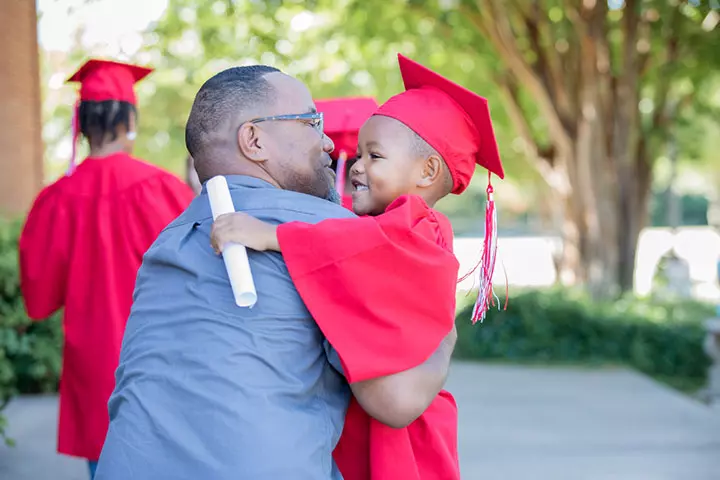
As parents who may not be together anymore, it is important that proper child support requires you to learn to set aside your feelings and give the top priority and commitment to your children’s feelings and well-being. This may be easier said than done, but it’s imperative in order to ensure the overall well-being of your little ones. Co-parenting your children after you are going through a separation or divorce may be the most difficult phase of your life that requires a huge sacrifice, but it will also be one of the most important elements when it comes to your child’s psyche. Here are a few ways in which you will be able to co-parent your child better once you and your partner have decided to part ways:
- Keep Your Feelings And Your Behavior Separate: In order to be impartial towards your ex in front of your children, you will have to make sure that you keep your feelings aside.You may hate to catch up with your ex as it brings back the unpleasant memories of the past. But while operating as a co-parent, you should not demonstrate negative behavior towards your ex and must not compromise on mutual respect, especially in front of your children. You may feel a range of emotions, such as anger, distrust, hatred or even hurt when you see your ex, but make sure you curb them for the time you are around your children.
- Vent Out Your Feelings Where Your Children Cannot See: As a human being, you are bound to experience all sorts of emotions, especially when it comes to working together as a co-parent with your ex. The key for you is to make sure that you do give a proper outlet to your feelings, just not in front of your children. If you keep all your feelings bottled up, they are bound to explode and come out in a way that will be negative to the overall well-being of both you and your children. Instead of waiting till it is too late to avoid an ugly scene, use the anger and channelize it into something positive. If you want to get your thoughts and feelings out, try talking to a friend who shares empathy and understand your situation, or speak to a therapist. Sometimes, keeping a journal can also help you get out your feelings and feel better.
- Stay Focused On Your Children And Remember Why You Are Co-Parenting: It is normal to feel that you may suddenly give vent to your emotions, but refocusing your thoughts to your children’s presence and well-being can help keep you grounded and under control. Never lose sight of why you are co-parenting with your ex. Remind yourself that you want to make sure your children are loved and cared for, and that they get the love and attention of both the parents that they deserve.
- Understand That The Problem Is Yours And Not Your Child’s: Remind yourself that whatever happened between you and your ex, your resentment towards each other, and its conflict resolution will only be shared between you two. Under no circumstances is it your children’s fault, and they should not be made to suffer for it.
- Do Not Be Negative In Front Of Your Children: You may not agree with a lot of things your ex has done in the past, or may not agree completely even now. If you and your ex are not able to reach a common ground where you feel that you both agree to something, do not show it in front of your children. It is hard to always keep a straight face and not react when you feel bad, but for the sake of your children, you will have to learn to do exactly that. Remember patience is a remarkable virtue and under no circumstances should you talk negative about your ex in front of your children. You may feel that your children should know why you and your ex had to move apart, and you may feel that you need to show them your side and show that you were right. Doing so will only turn the situation more and more negative. Remember that your ex is your child’s parent, and for your child, both you and your ex are equally important. When you try to show down your ex in front of your children, or when you try to tell them what a bad parent or partner your ex has been, it will only end up showing you as a bitter and complaining person, something your children will not want to relate to.
John Cecil, a blogger and a father, tells his story of successfully co-parenting his daughter after separating from his wife. He says, “Forgiveness allowed us to sit down and have honest discussions about how we wanted to raise our daughter. We talked about what kinds of values we wanted to instill in her. My daughter’s mom was passionate about breastfeeding, and I was adamant about having my daughter half the time, so we had to compromise… When we made our custody exchanges, we would talk about how things were going. If there was something that our kid needed, we discussed it.
“If the baby were sick, I would get constant updates. If she said or did something funny, I let her mom know. We went to doctor appointments together. We shared midnight emergency room visits. Facing a life knowing you will only get to be there for half of your kid’s childhood is depressing. Share as many of the special moments as you can (i).”
Thus, co-parenting after a divorce or separation requires a subtle balance of communication and cooperation for the child’s well-being.
Easy-To-Follow Dos And Don’ts For Co-Parenting With Your Ex
Even though it can be a draining experience and a difficult one at that, here are a few dos and don’ts that will help you effectively co-parent with an ex:
Dos:

- Sit down together with your ex and discuss what family values and principles you both want to impart to your children.
- Whatever differences you have with your ex, discuss it openly but make sure you do not do it in front of the children.
- Tell your co-parent why you think what they are suggesting may not be to the best interest of your children. Similarly, hear them out when they tell you why they do not agree with some of your parenting plans and practices.
- Come to a mutual agreement that both of you will not malign the other in front of the children, no matter what you feel for each other and how difficult it may be to work together as co-parents. If necessary, tell your ex what irks you the most about them and what they should try and avoid in front of the children to make sure you do not lose your cool. Similarly, give them the same option to view their concerns and emotions.
- If your child does say negative things about your ex, stop the discussion right there, even if it makes you feel better. Tell your children that under no circumstances should they speak ill of their parents.
- Talk to your ex and discuss important visitation rules and ways in which you each will spend time with the children. Some important decision-making that you will need to address and discuss are where the children will spend holidays, vacations, birthdays and other celebrations. You can consider taking family vacations where both you and your ex will be present. You can also discuss who will take the children to which class, which parent stays with the child on which weekend, who spends which part of the day or week with the child, etc. Of course you should also take your children’s wishes into account, when at all possible.
- Chalk out a plan of action in regards to the various behavioral and family value related guidelines that you and your ex want your children to follow. You may not be living together as a family anymore, but you will still remain a family as long as you both share your children. Also, your children will grow up with the values that you teach them now and encourage them to follow. Make sure that you and your ex both share the family values that you want your children to imbibe and learn, and that no parent takes a bigger share in putting forth the same.
- Talk about how your children will meet and spend time with extended family members including grandparents, cousins, aunts, and uncles. You can talk about where the children will meet them, who can have access to the children at what point in time or occasion, and so on. In the case of step-parenting in a blended family, setting the ground rules plays a significant role in defining clear-cut roles and schedules.
- Keep the communication channel open with your ex when it concerns the matter of your child’s development and well-being.
- Children can be extremely smart and understand how they can manipulate parents to get what they want. It is especially true when your children know that you are not together anymore and they can use the situation to make you feel guilty, so that their every wish becomes your command. Speak to your ex about fulfilling such wishes and so-called needs that your children may tell you about. You should both come to a mutual agreement after a healthy negotiation about what is acceptable to you both when it comes to your child’s demand and where you both will draw the line no matter what.
- If you suspect your ex has done something to which you do not agree as a parent, make sure you speak directly with him or her instead of forming your own opinion. Your child may tell you something but verify it with your ex before you start blaming them or get upset and angry. Remember that your children may have a very different view of looking at things, and the way they express something to you may not always be the accurate interpretation.
Don’ts:
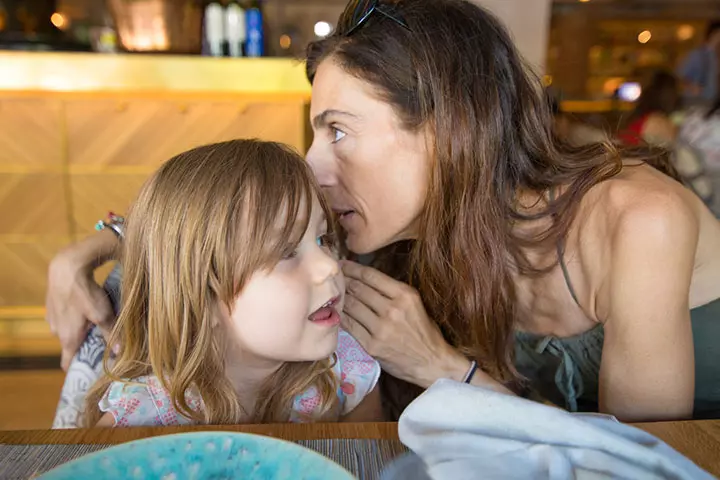
- Remember that your child is a child and not an adult, so whatever you speak in front of your child should be based on the particular age and maturity level.
- You may feel lonely, sad, angry, upset and a lot of other things towards your ex, but do not use that as an opportunity to share your moments with your child. Keep such feelings to yourself and speak about it with a friend or a therapist. Keep your child away from any such negative emotions that you may be going through. If you confide in your child about such feelings, it will only make them feel negative towards the other parent, and will harm the overall parent-child relationship, which can also backfire at you.
- Do not ask your child to bring back information about your ex, especially about things that concern their private lives. Never ask your children if your ex is meeting someone. In case your ex is already involved with someone in any sort of a relationship, do not ask your children to spy on them or bring back information.
- Never ever spread negative information about your ex to your children. Whatever happened was between you and your ex and it is for you two to deal with it. You should definitely leave your children out of it to make sure that they grow up into happy and healthy individuals who have the utmost love and respect for both the parents.
- Under no circumstances ask your children to choose sides and decide as to which parent they want to be with or spend more time with. You may have many issues with your ex, but please remember that your children are not to blame for it. Asking them to choose one parent over the other is one of the most negative things you can do to your children.
- Do not turn family events or gatherings into battle grounds where your only aim becomes to outdo or show down your ex. Do not do something for your children just because you want to prove to them that you are more fun than the other parent.
- While you may be lonely, do not expect your children to be your primary source of emotional support. It is understandable that you may be in need of company, but do not expect or force your children to spend all their time with you and just for you. You should not make them feel guilty for going out with their friends and spending time doing things away from you, just because you will be alone at home.
Co-Parenting Vs Parallel Parenting
Sometimes, spouses separate on bitter terms. In such cases, co-parenting becomes difficult, and they opt for parallel parenting instead. In parallel parenting, parents fulfill duties towards their child but with less or no interaction with their ex-spouse.
- Parents consult each other before deciding on anything for their child in co-parenting. Meanwhile, in parallel parenting, each parent can make decisions without consulting the other during their parenting time.
- Parents follow frequent and open communication regarding the child’s routine and schedules in co-parenting. In parallel parenting, there is no interaction between the parents, and each follows their parenting style and creates a separate routine for their child.
- Parents attend school meetings and other functions together with the child when co-parenting. In parallel parenting, however, the child attends school meetings and other functions with either one of the parents as they avoid social interaction.
Frequently Asked Questions
1. What role does consistency play in successful co-parenting arrangements?
Whether it is consistency in routine, rules, expectations, or behavior of the adults, in the case of co-parenting, consistency helps children adjust to the new parenting and living arrangements. It also helps children to understand the new family dynamics, and what they should expect from parents and prevents confusion and conflicts.
2. What are the benefits of keeping the lines of communication open and respectful with your co-parent?
Keeping the lines of communication open and respectful with the co-parent prevents misunderstandings, confusion, and arguments. It will also ensure that all the necessary information regarding children is shared properly and allow the co-parents to discuss and make collective decisions. Moreover, it also prevents manipulation by children when they need something.
3. What are the potential challenges of co-parenting, and how can they be overcome?
Different schedules, contrasting parenting styles, and unresolved conflicts are some potential challenges of co-parenting. However, compromising, setting aside adult conflicts, being flexible in certain situations, or even mediation can help to overcome these challenges.
4. How can co-parents support each other in their respective roles and responsibilities?
When co-parenting, keeping aside personal differences and conflicts is important. Also, acknowledging each other’s efforts, having a cooperative mindset, avoiding speaking negatively about each other in front of children, and treating each other respectfully can be helpful in supporting each other’s roles and responsibilities.
5. How can co-parents manage differences in parenting styles and approaches?
Prioritizing the children’s best interests, having respectful private discussions, and establishing consistent and coordinated rules and expectations can help parents manage their differences in parenting styles and approaches when co-parenting.
Co-parenting is an agreement between parents to look after their child when divorced or not married. Co-parenting allows children to enjoy the love and care of both parents and helps parents to share responsibilities involved in raising their children. Moreover, co-parenting gives children a sense of security and a friendly environment to live in. However, co-parenting can be challenging for partners, especially after a divorce. You may not want to revive old feelings but must face them to bring up the child together. To keep things sorted, do not vent undesirable feelings before your child, and understand that your relationship with your partner is not your child’s fault. So, develop mutual understanding and decide what is best for your child. You could also rely on useful co-parenting apps that help create a seamless co-parenting experience by fostering collaboration and reducing conflicts.
Infographic: Helpful Tips For Successful Co-Parenting
Even after divorce, many couples come together to raise their children right and give them the love of both parents. However, maintaining boundaries and setting some rules are essential in co-parenting. Look at the infographic below for crucial tips you should be aware of when co-parenting.
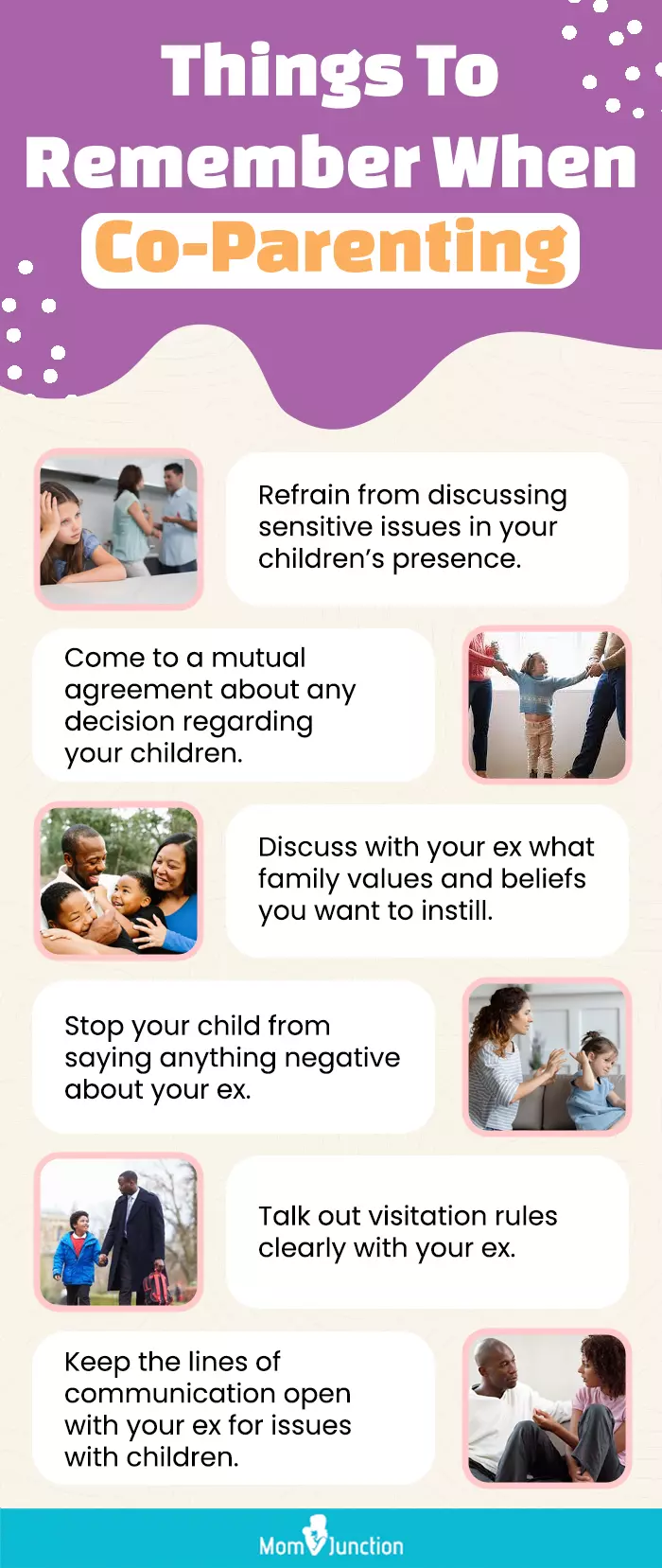
Illustration: Momjunction Design Team
Illustration: Real-Life Tips For Successful Co-Parenting: Dos And Don&039t&039s
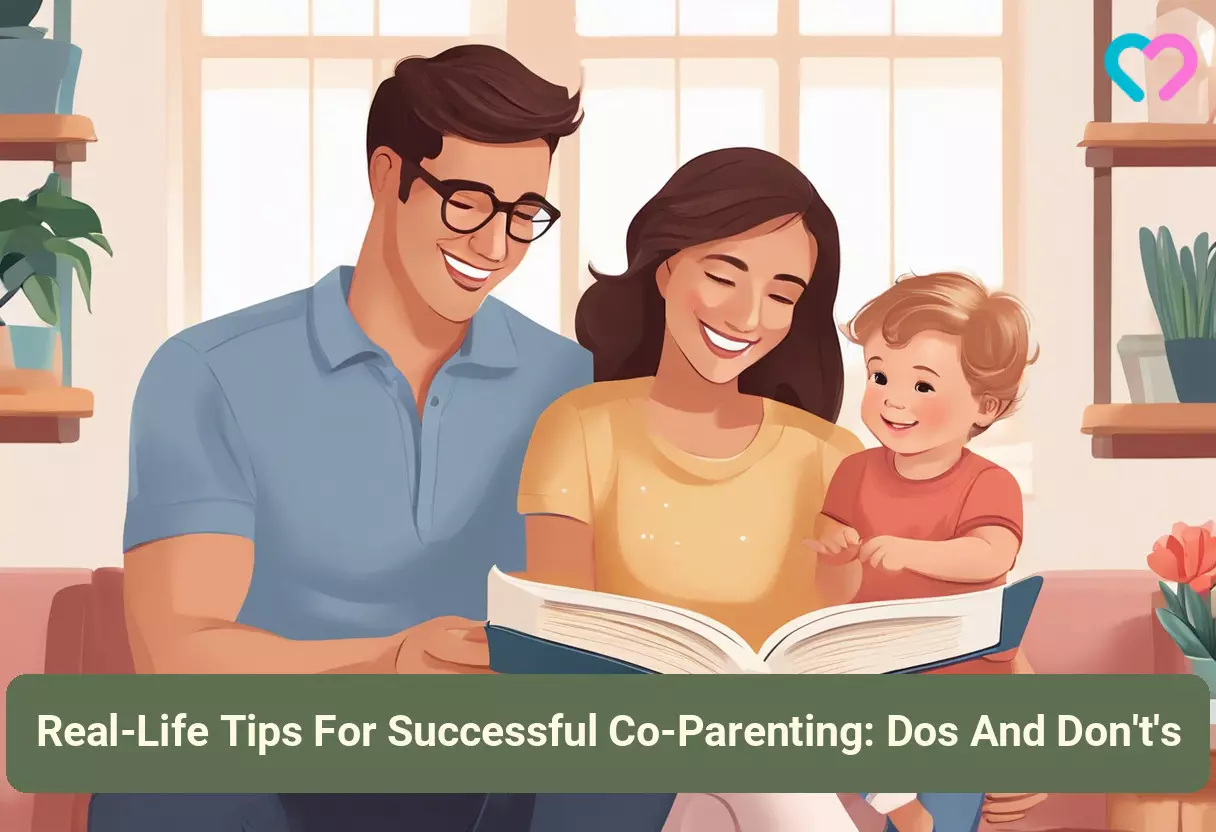
Image: Stable Diffusion/MomJunction Design Team
Co-parenting is essential for raising children as it helps create a secure and loving environment for children to thrive. Learn more details on its importance from the video provided.
Personal Experience: Source
MomJunction articles include first-hand experiences to provide you with better insights through real-life narratives. Here are the sources of personal accounts referenced in this article.
i. My success in co-parenting;https://anewpathdsm.medium.com/my-success-in-co-parenting-ccde9cab8cd4
Community Experiences
Join the conversation and become a part of our nurturing community! Share your stories, experiences, and insights to connect with fellow parents.
Read full bio of Andrea Riley
Read full bio of Kalpana M
Read full bio of Rebecca Malachi
Read full bio of Apoorva K










